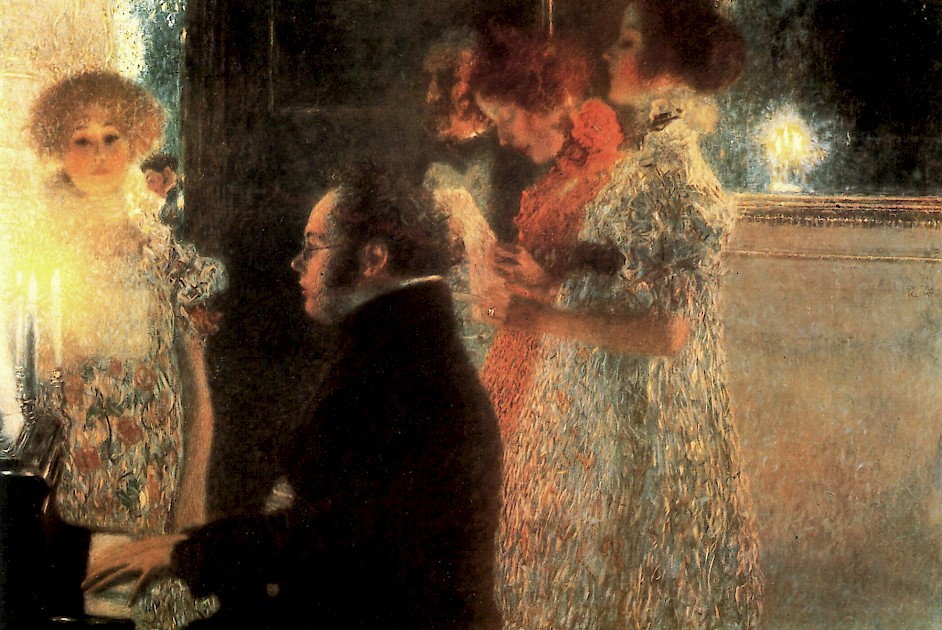Claiming Schubert
A BBC Radio 3 Sunday Feature presented by Sir John Tusa, broadcast on 25 March 2012

Since his death in 1828, the Austrian composer Franz Schubert has been appropriated in various ways by critics, artists, listeners and European politicians. In a Sunday Feature for BBC Radio 3's 'Spirit of Schubert' season in 2012, Sir John Tusa explored some of the competing claims for the composer and what his music represents.
Robert Schumann's description in 1837 of Schubert as 'feminine' compared to Beethoven gave rise to a pervasive 'soft Schubert/tough Beethoven' trope, found even at the heart of Austrian political debate in the early 20th century.
George Eliot identified Schubert's expressiveness, intensity and formal freedom with main characters in her novel Daniel Deronda, highlighting the composer's originality and dramatic power.
George Grove, so emotionally affected by Schubert's music that he went on a mission to locate more, harnessed the composer for educating audiences at the Crystal Palace Saturday concerts. In the 1920s Rosa Newmarch celebrated Schubert's ability to break down emotional reserve in English listeners whose feelings had formerly been suppressed.
Viennese workers in the 1870s co-opted Schubert to assert their socio-economic rights against the dominant military class, finding empowerment. Eventually the composer's image was dragged into increasingly bitter debates about Germany vs Austria and shifting views on the Austro-Hungarian monarchy.
Contributors include Scott Messing, Leon Botstein, Leanne Langley and Delia da Sousa Correa. The programme was produced by Emma Kingsley.
'I was delighted to hear your Schubert clip on Pick of the Week'
Peter Avis, music lecturer
'Out of a lot of Schubertry last week, this bit was a highlight'
Mark Hancock, renewable energy engineer
Listen to a BBC Radio 3 podcast of the programme here.
 Langley
Langley